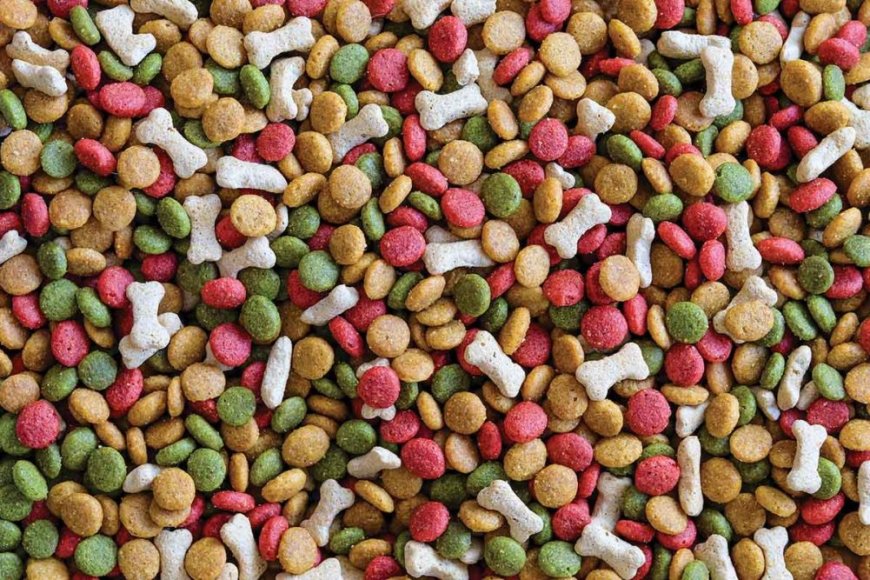Pet Foods: Navigating Choices for Optimal Health
Selecting the right pet foods is a pivotal aspect of responsible pet care, and impacts your furry companion's health, happiness, and longevity.

Starting:
When taking care of pets, choosing the right food is one of the most important decisions you can make. Just as nutrition is important for our health, it is also important for the health and lives of our beloved pets. There are so many choices on the market, from kibble to raw food, all of which claim to be the best for your pet's health. This detailed guide goes into the complicated world of pet food, looking at the different options, weighing the pros and cons of each, and giving you information to help you make a smart choice.
Understanding Pet Foods:
Many different kinds of pet foods are made to meet the nutritional needs of different breeds and species. These include store-bought dry and wet foods, home-cooked meals, and special diets for people with special dietary needs. Proteins, carbohydrates, fats, vitamins, and minerals are all important parts of pet food, and they are carefully balanced to support good health and vigor.
Different Kinds of Pet Food:
Dry Foods: Among the most common choices, dry Pet foods come in the form of kibble and pellets. They offer convenience, a long shelf life, and dental benefits, boosting oral health through chewing. However, some may contain fillers and preservatives, and water content is usually lower compared to wet foods.
Wet Foods:
Characterized by higher moisture content, wet pet foods often appeal to picky eaters due to their palatability and flavor. They provide hydration and are easily digestible, making them ideal for pets with dental issues or those prone to urinary tract problems. Nonetheless, they tend to spoil faster and can be more expensive than dry options.
Raw Diets:
Raw feeding advocates for a diet that mimics what pets would consume in the wild, including raw meat, bones, organs, and occasionally fruits and vegetables. Proponents say that such diets promote dental health, improve coat condition, and reduce allergies. However, worries exist regarding bacterial contamination, nutritional imbalances, and safety risks associated with handling raw meat.
Prescription Diets:
Recommended by veterinarians to address specific health problems such as obesity, kidney disease, or food allergies, prescription diets are formulated with targeted ingredients to manage or alleviate symptoms. While successful in managing certain conditions, they often come with a higher price tag and may require a long-term commitment.
Pet foods have pros and cons:
Convenience:
Pet foods offer convenience, eliminating the need to make meals from scratch and ensuring consistent nutrition.
Nutritional Balance: Commercial pet foods are formulated to meet important nutrient requirements, supporting overall health and vitality.
Variety:
The market offers a plethora of options to cater to different preferences, dietary restrictions, and health conditions.
Cost:
While budget-friendly options exist, premium pet foods and specialized diets can be costly, impacting long-term costs.
Ingredient Quality:
Quality varies among pet food brands, with some valuing wholesome, natural ingredients, while others may contain fillers, by-products, or artificial additives.
Health Risks:
Certain diets, such as raw feeding, face inherent health risks such as bacterial contamination and nutritional imbalances, necessitating careful thought and veterinary guidance.
Conclusion:
Selecting the right pet foods is a pivotal aspect of responsible pet care, and impacts your furry companion's health, happiness, and longevity. While the market offers an abundance of choices, each comes with its own set of considerations and trade-offs. Whether choosing dry kibble, nutritious wet foods, or specialized diets, prioritizing balanced nutrition, ingredient quality, and veterinary guidance is crucial. By making informed choices and tailoring diets to individual needs, pet owners can ensure their beloved companions thrive on a diet tailored to their specific needs.
Frequently Asked Questions (FAQs):
What should I look for when picking pet foods?
When picking pet foods, prioritize products that offer balanced nutrition, contain high-quality ingredients, and are suited to your pet's age, size, breed, and health state. Consulting with your veterinarian can provide personalized suggestions based on your pet's specific needs.
Is raw feeding a safe choice for my pet?
While raw feeding enthusiasts advocate for its benefits, including better dental health and coat condition, it comes with inherent risks such as bacterial contamination and nutritional imbalances. Consult with your veterinarian to weigh the possible benefits and risks and ensure safe handling practices.
Are grain-free diets safe for all pets?
Grain-free diets have gained popularity in recent years, but they may not be ideal for all pets. While some animals may benefit from grain-free formulations, others may grow on diets containing grains. Consider your pet's individual dietary needs and consult with your veterinarian for tailored suggestions.
How can I move my pet to a new diet?
When transitioning your pet to a new diet, do so gradually over 7–10 days to reduce digestive upset. Start by mixing small amounts of the new food with their current diet, gradually increasing the proportion of the new food while lowering the old food until the transition is complete.
Are homemade pet foods a reasonable option?
Homemade pet foods can be a viable choice for pet owners seeking more control over their pet's diet. However, it's important to ensure recipes are nutritionally balanced and meet your pet's specific dietary requirements. Consulting with a veterinary nutritionist can help create appropriate homemade meal plans.
Can pets' foods expire?
Yes, pet foods can expire, and it's important to check expiration dates and storage recommendations to ensure freshness and safety. Proper storage in a cool, dry place and tightly sealing opened packages can help extend shelf life and maintain product quality.
Are there any common allergens in pet foods?
Common allergens in cat foods include certain proteins such as beef, chicken, and dairy, as well as grains like wheat, corn, and soy. If your pet displays signs of food allergies or intolerances, such as itching, gastrointestinal upset, or chronic ear infections, consult with your veterinarian to identify and eliminate potential triggers.
Should I supplement my pet's food with vitamins or minerals?
Supplementing your pet's diet with vitamins or minerals should be done under veterinary direction, as excess supplementation can lead to imbalances and adverse effects. In most cases, balanced commercial pet foods provide all essential nutrients, and supplementation may not be required unless recommended by a veterinarian to address specific deficiencies or health concerns.
What's Your Reaction?
 Like
0
Like
0
 Dislike
0
Dislike
0
 Love
0
Love
0
 Funny
0
Funny
0
 Angry
0
Angry
0
 Sad
0
Sad
0
 Wow
0
Wow
0
















































